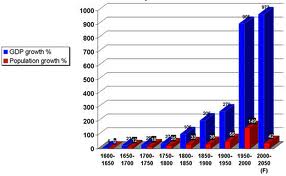 But turning to U.S. and Japan in particular. Those two countries are running higher deficits than the Euro Zone on a consolidated basis. They run very high debt. Completely different structure depending whether on you sit in Japan, the U.S. or the Euro Zone but equally those countries have to anchor in the medium term what they’re going to do about this constant, regular deficit in the last two years and how they are going to turn around the debt trajectory that is theirs at the moment.
But turning to U.S. and Japan in particular. Those two countries are running higher deficits than the Euro Zone on a consolidated basis. They run very high debt. Completely different structure depending whether on you sit in Japan, the U.S. or the Euro Zone but equally those countries have to anchor in the medium term what they’re going to do about this constant, regular deficit in the last two years and how they are going to turn around the debt trajectory that is theirs at the moment.
Emerging market economies and particularly those that are in a surplus situation, they have to continue what they have began to do which is actually re-concentrate on the internal markets on the domestic consumption rather than rely too exclusively on exports and investment. That could apply equally to advance the economies that are in a surplus situation.
So that’s pretty much what can be done by the Euro Zone in particular, by the rest of the world, I recognize that it’s very sketchy Martin but in the interest of being brief and to the point I have decided to be a little bit elliptic. What the IMF can do, because the IMF is one of the tools that I referred to earlier on, is clearly to act as an aggregator of trust, as a propagator of stability and certainly in that process needs to demonstrate the multilateral support of its membership to actually accommodate and supplement some of the situations, not in the Euro Zone but in any country that is a member of the IMF.
There will be needs in the Euro Zone, no doubt about it but in Central and Eastern Europe there will be needs as well. And in other countries, including low income countries, including middle income countries, there will be needs. Short term for some, longer term for others and it’s for that reason Martin that I’m here with my little bag to actually collect a bit of money. Thank you.
I take it that this is not a plea to the business leaders for a philantrophic gesture but we will certainly come back to the question of IMF resources after the introductory remarks. I am going to turn now to Governor Mark Carney and how you see the world economy and you are presiding over an economy that seems to be happily immune, presiding the monetary fear obviously and a number of people say, a striking feature of this crisis is all the countries that have recently had crisis in the last three decades have managed to avoid the crisis this time. I would also like your view on how you see the financial sector more broadly in your present role and its resilience because that has been an enormous concern in the last few months and I think it’s kind of really gone away just because Mario has decided to provide more money than before. So what’s your perspective on where we are in those to respects.
Thank you Martin. Just in terms of overall outlook, I absolutely agree with the IMF. I mean this is a 3% growth world, roughly a 2% United States, 8% China. China decelerating but to a still strong pace. Importantly in that though is the impact of the Euro Zone crisis. In our view, the impact of Europe at the level of global GDP is about 1% off the level of global GDP at the end of 2012. So, we are all going to feel this and that’s in a world where this crisis is contained and containment is different than resolution. So why is there the impact. There’s an impact in terms of the order of dexterity. In Europe, we have Europe down 1%, a little more than the IMF for 2012.
But secondly, through financial channels and I will get to that in a moment. To go back to where you started at the very beginning though, we are in a great deleveraging in the advanced economy and it’s very hard to grow economies, it’s very hard to de-lever unless you are increasing leverage somewhere else and there’s only really two options in the world. The corporate sector and the emerging markets as a whole and we will hear it more directly from colleagues on the latter so I will focus on the corporate sector and the link with finance.
I think part of the mood here in talking directly to the real economy, is there’s a lot to do but there is a great deal of uncertainty we’ve contributed to that from our respective world in our respective jurisdictions. I will give you one fact or anecdote, if you will, the M&A backlog at major investment banks is at an all time high so the number of potential transactions that CEO’s are contemplating, and the equity backlog is also at an all time high.
Davos 2012 – Global Economic Outlook Pt 3
